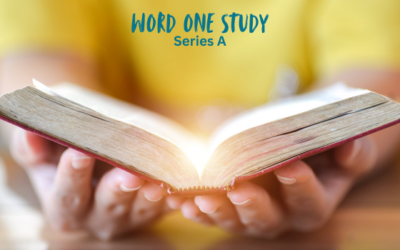Download a PDF of the What a Choice.
Part of WHY? A RESOURCE KIT FOR TALKING TO STUDENTS ABOUT DISASTER, RELIEF, & RESTORATION
Core Text: Ephesians 1:3-14
Core Visual/Illustration: Bring a choice of food items. M&M’s in different colors would be good. Also bring fruit (such as grapes which have some good grapes and some which are a bit brown or soft. Invite students to choose the food they want. Everyone needs to choose both candy and fruit, but no one is to eat their choice right away. Just have it in front of them.
Major Teaching Points:
Teaching Point #1
The choices we make are based on either a relatively careless attitude: there’s no difference, all M&M’s are the same; or a self-serving attitude: I’ll take the good grapes and leave the poor ones for someone else. We might expect that God has same attitude in his treatment of people. He can be thought of as careless, letting some die and others live without any regard for who they are. This attitude would be like the choosing of the candy. If they’re all the same, what does it matter? Or, we might imagine that God treats people like good and bad grapes and so only the good ones are preserved and the evil ones are eliminated.
Teaching Point #2
However, God does not treat Christians according to their sins or reward them according to their iniquity. See Psalm 103:10. He does not harm people for their parents’ sins or for the sins that they have not yet committed. See John 9:1- 5. Further, God does not callously choose some and not others simply because people don’t really matter to him. See Ezekiel 33:11.
Teaching Point #3
Therefore, when we see that God saves some from death and destruction, but allows trouble to come to others, we are in the middle of a mystery. God’s election of some for salvation, Ephesians 1:3-14, is always an election to life. He does not have a corresponding election to eternal death but he desires all to be saved. Yet, when trouble or an untimely death is allowed to come to some, we perhaps can best go to Jerusalem with Jesus where he weeps over the loss of these people, Luke 19:41-42.
Teaching Point #4
Our salvation and our daily protection then are not mere chance, nor are they a sign that we are better than others. They are the kindnesses of God which are undeserved and yet are a part of God’s intended plan. As believers, we are saved by His careful, eternal choice and can only give thanks for this mystery which saves us eternally and also which preserves us from many physical troubles.
Questions/Discussion Starters for Youth:
1. After students choose their candy and fruit, ask why they chose their items. Guide them to at least two options. Either, “It makes no difference” or, “These are the best and so I took them for myself and left the poor ones.”
2. How would these two choices explain how God might have chosen why some would be saved eternally and some would be lost eternally? Lead students to see that these choices would either make God careless of the lives of people or that he would choose people on the basis of their own goodness.
3. However, after reading through the verses in the Teaching Points, especially Ephesians 1:3-14, how does God choose people to be saved? Notice that the choice is only of those saved. God does not have a corresponding choice of those to be condemned.
4. Since God’s choice of people to be saved is through His Son without reference to their own evil or good, what mysteries are still left? (All we can say in the end is summed up well by Francis Pieper in Christian Dogmatics, Vol. III, p. 502:
“We cannot explain this mystery. In the light of the facts clearly revealed in Scripture, that the grace of God is universal, and that all men are alike totally depraved, we cannot answer the question…Why some and not others? But Scripture directs us to hold our tongue. The question should remain unanswered. Scripture (Rom. 11:33) speaks of God’s “unsearchable judgments and ways past finding out”…(we cannot go) beyond this boundary of human knowledge: Whoever is saved, is saved by God’s grace alone; whoever is lost, is lost solely by his own fault.”
5. If this mystery remains, how should Christians react to God’s kindness in electing them to eternal life?











0 Comments